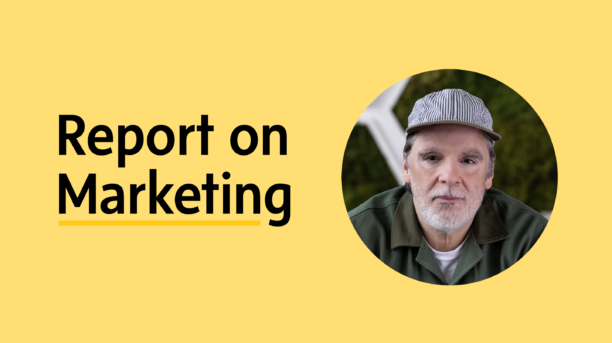Darian Kovacs, Partner at Jelly Digital Marketing & PR, makes a compelling case for a trio of programs that will drive both business growth and a greener future.
Did you know that if the internet were a country, it would rank among the top five CO₂ emitters globally? For digital marketers, that’s a wake-up call. Every website visit, email campaign, and digital ad leaves a trace and it adds up.
As digital marketing continues to fuel business growth, it’s essential to recognize the environmental impact behind the screen. From landing pages and email sends to social media posts, every digital touchpoint contributes to a carbon footprint that’s often overlooked but very real.
Given how central the internet is to both our personal lives and professional operations, the real question becomes: how can we build a greener future, one that doesn’t just talk about sustainability, but actively practices it?
Today, sustainability has become more than a buzzword; it’s a competitive advantage. Consumers increasingly expect the brands they support to act with environmental integrity. And while it’s easy to make sweeping green claims, the businesses that truly stand out are the ones willing to back up their promises with action.
That’s where third-party certifications come in. These credentials offer marketing professionals a way to turn good intentions into verified action. They build trust, cut through greenwashing, and show that your business is serious about reducing its digital impact.
But sustainability isn’t about perfection. Nor is it about outsourcing responsibility through quick fixes like carbon offsets. True sustainability is rooted in accountability, transparency, and a long-term commitment to better practices. For digital marketers, this could mean choosing greener hosting providers, reducing the data load of campaigns, or partnering with certified sustainable platforms.

Small steps matter and when backed by meaningful certification, they can lead to big change. Here are three of the most respected sustainability certifications that are reshaping what corporate responsibility looks like today.
1. B-Corp Certification: Business as a Force for Good
B-Corp certification is one of the most comprehensive and respected sustainability designations a business can achieve. Administered by the non-profit B Lab, this accreditation is awarded to for-profit companies that meet exceptionally high standards of social and environmental performance, governance, and accountability.
What makes B-Corp unique is its holistic approach. The certification doesn’t just look at a company’s environmental footprint; it also evaluates how it treats workers, supports communities, and maintains transparency in its operations. Becoming a B-Corp is a rigorous process, requiring third-party verification, ongoing improvement, and recertification every three years.
In a time when consumers are skeptical of marketing jargon, B-Corp provides a clear signal: this company isn’t just talking the talk, it’s walking the walk.
2. Offset Certification: Rethinking Carbon Responsibility
At the Offset Foundation, the focus is on helping businesses decarbonize in a credible, impactful way. Their certification goes beyond the transactional act of buying carbon credits; it verifies that companies are investing in Gold Standard and Verra-accredited projects, in other words, initiatives that meet the strict requirements of UN-accredited auditors.
The Offset Certification is a powerful tool for businesses looking to take real action on their digital carbon footprint. Using a proprietary calculator, it analyzes key factors like monthly website traffic, visitor locations, and average page size to estimate your site’s carbon emissions. In just 30 seconds, you’ll receive a clear snapshot of your website’s impact, along with tailored offset project recommendations to help you move toward carbon neutrality.
Offsetting is often misunderstood. It’s not a shortcut to sustainability, nor should it be a license to pollute without consequences. Done right, it’s a way to address emissions that are genuinely difficult to eliminate. The Offset Certification helps ensure that businesses aren’t just paying for peace of mind; they’re contributing to real, measurable environmental impact. Investing in these types of carbon credits drives investment to environmental projects that have real climate impact and measurable results.
This approach appeals to companies that recognize their environmental footprint and want to be part of the solution, not just avoid scrutiny.
3. 1% for the Planet: Giving Back with Accountability
Founded over 20 years ago by Patagonia’s Yvon Chouinard and Blue Ribbon Flies’ Craig Mathews, 1% for the Planet was built on a simple but powerful idea: businesses should give back to the environment that supports their success.
Members of the program commit to donating at least 1% of their annual sales, not profits, to vetted environmental organizations. Each donation is independently certified to prevent greenwashing and ensure true accountability.
Donors have given $728 million to date, and 1% for the Planet has become a global force, helping thousands of companies translate their environmental values into tangible impact. For consumers, this certification offers a level of trust and assurance that the business they’re supporting is genuinely committed to giving back.

The Bigger Picture
Sustainability certifications aren’t just trendy logos to slap on a website; they’re commitments to something larger than profit. In an era when customers are increasingly value-driven, these certifications can become powerful differentiators. They signal intention, action, and integrity.
But they also come with responsibility. Certifications like B-Corp, Offset, and 1% for the Planet require real effort, ongoing accountability, and a willingness to lead by example. For companies that are serious about doing good, not just looking good, they represent the gold standard.
Because the future of business isn’t just about growth, it’s about growth that gives back, it’s time to get certified.
Jelly Digital Marketing & PR is a member of the Institute of Canadian Agencies (ICA). Report on Marketing is where leading Canadian agencies showcase their insights, cutting-edge research and client successes. The Report on Marketing provides a valuable source of thought leadership for Canadian marketers to draw inspiration from. Find more articles like this at the Report on Marketing.
See all Ideas & Insights




